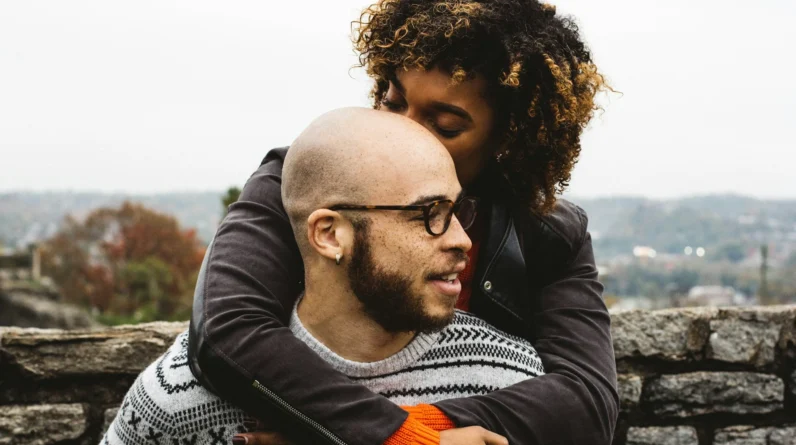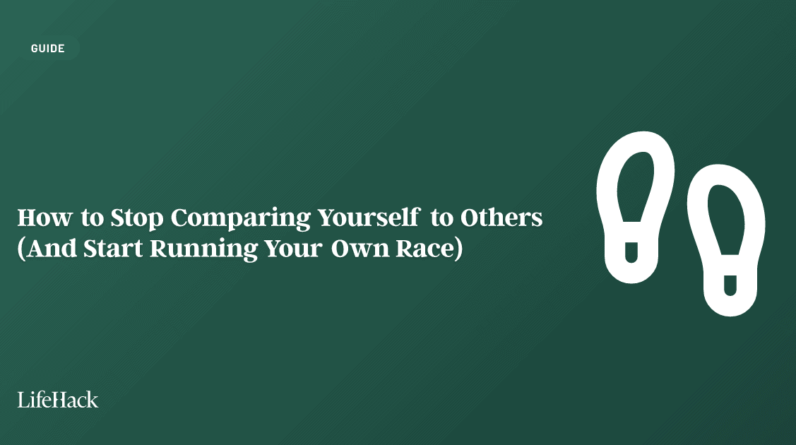
Do you tend to obsess over your partner or spouse?
I don’t mean in the beginning of a relationship when you’re in the honeymoon phase. It’s very natural for both of you to think about each other constantly. You’re falling in love, and this can cause you to literally think of them all day long.
However, if you’re obsessing over your partner out of insecurity, that’s another story. You could be dealing with an unhealthy attachment or codependency.
I understand having an unhealthy attachment to a loved one.
I obsessed over my ex-partner for about five years. Almost all of my waking moments were thoughts about them. If I was not with them, I was thinking of ways to help them or make their life easier, writing poems, figuring out how to make them smile, and so on.
Sure, thinking about your partner can be a wonderful thing, but obsessing about your partner is unhealthy.
If you seem to always be thinking thoughts like…
- What are they doing?
- Who are they talking to?
- Why won’t they text me back?
- Do they still love me?
…then you may be headed down a codependent path that will hurt your relationship. If your world and life revolve around your partner and what they think of you, you may need to evaluate your relationship.
Insecure Attachment and Obsessive Thoughts
When I finally came to the realization that I couldn’t live in an unhealthy relationship any longer, I had to learn why I felt so obsessive in the first place and work through some deeply engrained insecurity.
I had to learn how to stop the obsessive thoughts. I had to re-train my brain – it took time and effort, and I was not always perfect with it. I had to remind myself time and time again that my thought life was not obsessive before this relationship. This gave me hope.
I needed to know that I could gain control of my mind once again.
I’m not sure what it will take for you, but for me, it took taking some time apart from my partner. We both knew that something was wrong with the relationship. Codependency was one issue among others that we both decided to face and work through.
I was finally completely honest with myself and with my partner that I had a problem and it was codependency. Thus began my true endeavor to break free from that bondage and learn to have a healthy relationship with myself and others.
In the long run, that relationship didn’t survive, but I learned so much about myself, codependency, and life during that time.
Helpful Tips To Re-Train Your Brain
The good news is that you don’t have to stay stuck in obsessive thinking.
You can re-train your brain and break free from such bondage. There were a few things that really helped me to do this.
1. Read up on the subject.
First, reading books on codependency recovery helped a lot. When I started feeling codependent characteristics pop up, I would get one of my books out and start reading. This would help me from acting out on the urges.
There are plenty of YouTube videos on codependency on the topic as well. You can get a lot of solid, professional advice for free there, so take time daily to watch or listen to some. You’ll get familiar with various teachers and form your favorites.
2. Learn how to tap into your mind through meditation.
Meditation also helped me, as this technique is known for helping to gain control over your thought life. It also helped me to heal some old childhood wounds that had been tripping me up while in my relationship.
3. Find proven support
Thirdly, the 12 Step group Codependent’s Anonymous was a great support system.
Build a Supportive Network
You may also want to reach out for help and build other healthy friendships.
If you’ve wrapped your world around just one person, consider launching out and building a network of connections. I’m an introvert, so having a lot of friends didn’t really appeal to me. I had my children and my sister and figured that was enough.
Now, that can be enough, but I chose to reach out and make a couple of friends that I could spend time with on occasion doing things that we enjoy. I didn’t always love the idea of going to hang out with someone other than my partner, but once I did I always felt so much better and happier!
You may also want to get involved in a broader community just to get out around a group of likeminded people.
It will do you some good to have some sort of support and friends’ network outside of your partner. If you can’t really get out in your community, check out online video gatherings. There are many Facebook groups that have regular video gatherings, as well as Zoom.
Even if you’re single, you will benefit from having connections with others. It’s easy to isolate when we’re feeling down, but isolation can drive you crazy after a while. Make a commitment to get out there and create a life outside of your partner and as you do, the obsessive thoughts should decrease.
Final Thoughts on Codependency
It’s great to think about your loved one, but to obsess is not alright and will create problems.
Try to recognize when you start obsessing and do something to break the cycle. Read your books, go for a walk, listen to some encouraging audio, go to a meeting, meditate, journal, take a long, hot bath or shower, or do something else that you enjoy.
As you do this more and more, you’ll find that the obsessive thoughts start to drop away and the cycle will occur less and less.
Updated from Dec 21, 2021
Photo by Justin Follis on Unsplash







